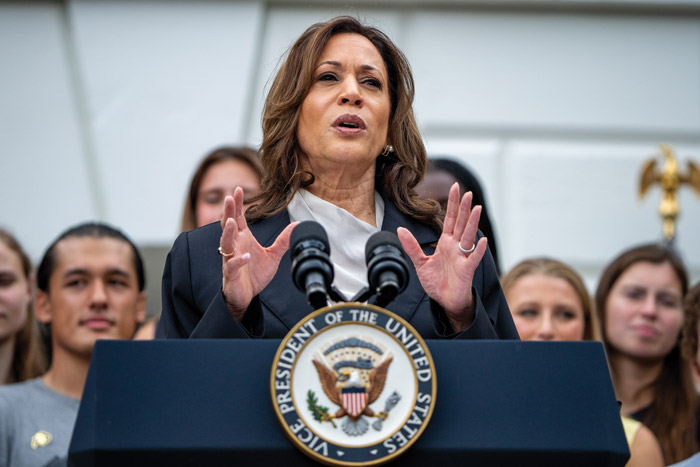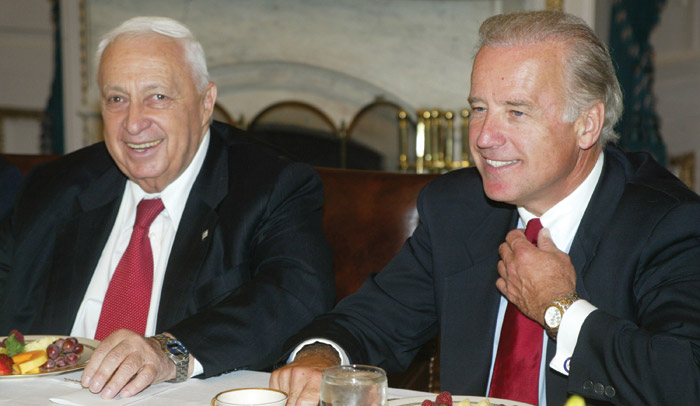 Palestinian President Mahmoud Abbas. Photo by Spencer Platt/Getty Images
Palestinian President Mahmoud Abbas. Photo by Spencer Platt/Getty Images The most interesting debate concerning annexation isn’t the one between Israelis and Palestinians, left and right wingers, Jewish Israelis and Jewish Americans or President Donald Trump and presumptive Democratic Presidential nominee Joe Biden. It’s the one between settlers who support or oppose annexation.
Yes, many settlers oppose annexation. Or, to be accurate, they oppose the proposed annexation based on the Trump peace plan. Their opposition is based on a strong ideological argument. It doesn’t involve the usual arguments about Palestinian rights, or international law, or the reaction of American Jews, or the dream about an end to the conflict, or about the offended king of Jordan, or the fear for Israel’s Jewish and democratic character.
It’s based on the view that by annexing part of the territory, Israel is both receiving and giving up land. It would get about one third of the West Bank. Moreover, when Israel annexes land, based on the Trump plan, it would accept the idea on which the whole plan is predicated: If, one day, the Palestinians come to terms with the compromises they must accept if they wish to end the conflict, they would have a state in parts of Judea and Samaria.
The debate between the settlers is interesting because it exposes a rift within the maximalist camp — one that looks at the most important question for Israel: Is it worth it?
The settler movement is, at its core, a pragmatic organism and the reason for its success. Its leaders are not a dreamy bunch. They are realistic, cynical and effective. They know how to handle politics, they know how to handle the bureaucracy, they have logistical skills, they can move mountains, they can be manipulative and cunning. They have goals, and they usually meet their goals. Of course, they also have ideology. It is quite simple: Israel ought to settle and control as much of the land as it possibly can.
For most settlers, the M.O. is always pragmatic. They see an opportunity, they seize it. Act now, worry later. The question then becomes: Is the annexation plan a real opportunity?
Some say it is. Implement sovereignty now, worry about a pipe-dream Palestinian state later. Enjoy Trump as long as he lasts, deal with Biden next year if he is elected. For the leaders of the settlement movement, the Trump plan is a no brainer. A gift is offered, you take it.
But other leaders don’t see a gift. They see a poison pill wrapped as a gift. They see a small symbolic gesture — because annexation won’t have much impact on the reality on the ground — in exchange for a much larger symbolic gesture: a recognition that the end goal is a Palestinian state. For a movement that uses mostly bricks and cement, rejecting symbolic gestures isn’t out of character.
Many settlers oppose the proposed annexation based on the Trump peace plan.
The debate between settlers is the only one that properly weighs the pros and cons of the plan, from Israel’s perspective, without much distraction. What are the pros? More land. But it is land that Israel already controls. Official recognition. But this is recognition only by a U.S. administration possibly at the end of its term. What are the cons? Israel might have to pay a price for annexation. Maybe international condemnation, possibly more. So, are we afraid of paying a price? Not when something real is at stake. The answer could be yes, when a mere symbolic recognition of an already existing situation is offered.
The settlers understand that annexation isn’t a moral question. If it were, there would be no debate because they’re all on the same side. The settlers understand that annexation is a practical question. Annexation is good for Israel, but is it good enough to overcome the price?






















 More news and opinions than at a Shabbat dinner, right in your inbox.
More news and opinions than at a Shabbat dinner, right in your inbox.